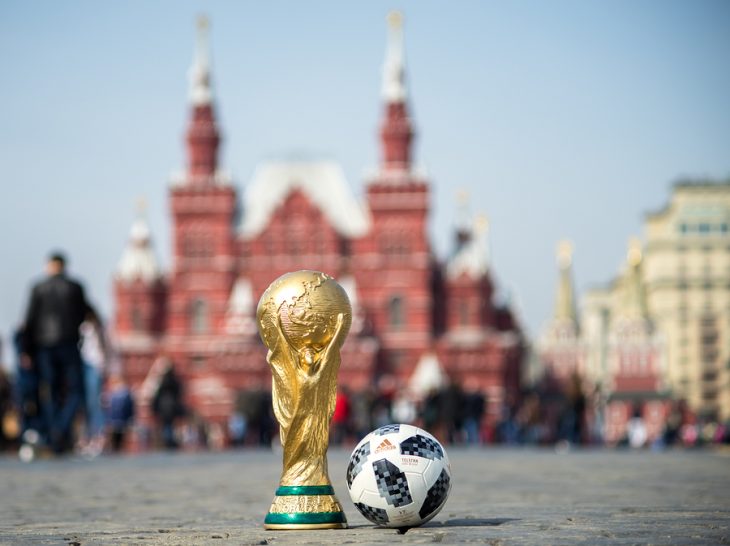
"IT'S NOT OUR FAULT" doesn’t work as an explanation with a group of Mexican-Canadian soccer fans who want to watch their team take on the imposing Germans, reigning world champions, in their own language.
The last time I spoke up on this issue here, my trepidation that we would be penalized turned out to be unfounded. Instead the fine people leading CBC Sports reached out and the result was an announcement reported here that CBC/Radio-Canada has named Telelatino Network Inc. (TLN) as an official licensed broadcaster for coverage of the Olympic Winter Games PyeongChang 2018 and the Olympic Games Tokyo 2020, allowing Canadians to enjoy coverage of the Olympic Games in more languages.
Now the World Cup of soccer, the global championship tournament for the most popular sport on the planet, has an extra special meaning in Canada. With 32 qualifying nations (sadly, almost never Canada), oddly enough the World Cup does not create divisions but rather is a powerful cultural unifier, an event where that elusive concept of multiculturalism is played out for all to enjoy. Nothing reveals the majesty of Canada's multicultural society like the joyous ethnic celebrations that erupt spontaneously during the World Cup.
But I need to start this critique with a disclaimer. I have nothing against World Cup rights owner Bell Media. It’s one of Canada’s leading business organizations. It is a giant in media and telecommunications. An innovator. Millions of Canadians rely on and enjoy its products and services. Some of the people I most respect and admire, and good friends, work at Bell. It’s national on-going “Let’s Talk” initiative has almost single-handedly helped melt the stigma around mental illness, raised awareness and moved people to act. So I have nothing but admiration for Bell, and I am an enthusiastic viewer of TSN, and especially their great World Cup coverage so far.
So it pains me to say this. As I rose early on Father's Day Sunday June 18, 2018 ready to enjoy a full morning and afternoon schedule of World Cup soccer, I couldn't forget that this is the first World Cup in decades which has not included multilingual broadcast coverage – and we are not alone. Fairchild Television has done the same many times to serve Chinese and Korean Canadians with World Cup soccer matches in third languages. Together, we and Fairchild have provided World Cup coverage in six languages to populations of third language speaking Canadians that total almost 6 million.
It has not been easy the past few days answering the many people who have asked us why they don't have any multilingual matches at all this time. After all, they have enjoyed full Italian and Spanish coverage of all 64 matches (and even all of Portugal's matches in Portuguese) on TLN Media Group's channels during previous World Cups.
“We believe Canadians would be better served if rights holders were prohibited from squatting on unexploited multilingual rights.”
Looking forward to future major world sporting events, we believe Canadians would be better served if rights holders were prohibited from squatting on unexploited multilingual rights. Other jurisdictions around the world have enacted regulations along those lines and Canadian regulations contain analogous provisions. For instance, Canadian TV channels are not permitted to deprive carriers of their signals, and foreign broadcasters are not supposed to deal exclusively or preferentially with programming rights to the detriment of Canadian broadcasters.
Canada is widely regarded as one of the world's most successful multicultural societies. One of the many contributing factors to this success has been Canadian-based ethnic media that speak not only to isolated linguistic communities but to Canadians generally, sharing culture and building bridges. Foreign ethnic media are of course widely available in Canada but they pursue their own interests, often incompatible with Canadian needs, interests, societal norms and values.
It’s time to rethink Canadian ethnic broadcasters' special place and responsibilities in our system. For too long the Canadian ethnic broadcasting sector has been ghettoized and largely ignored despite its significant contributions to social cohesion and nation building.
"Foreign language" broadcasts of major events is just another way to ensure Canada wins the World Cup of multiculturalism!
Aldo Di Felice is president of TLN Media Group



